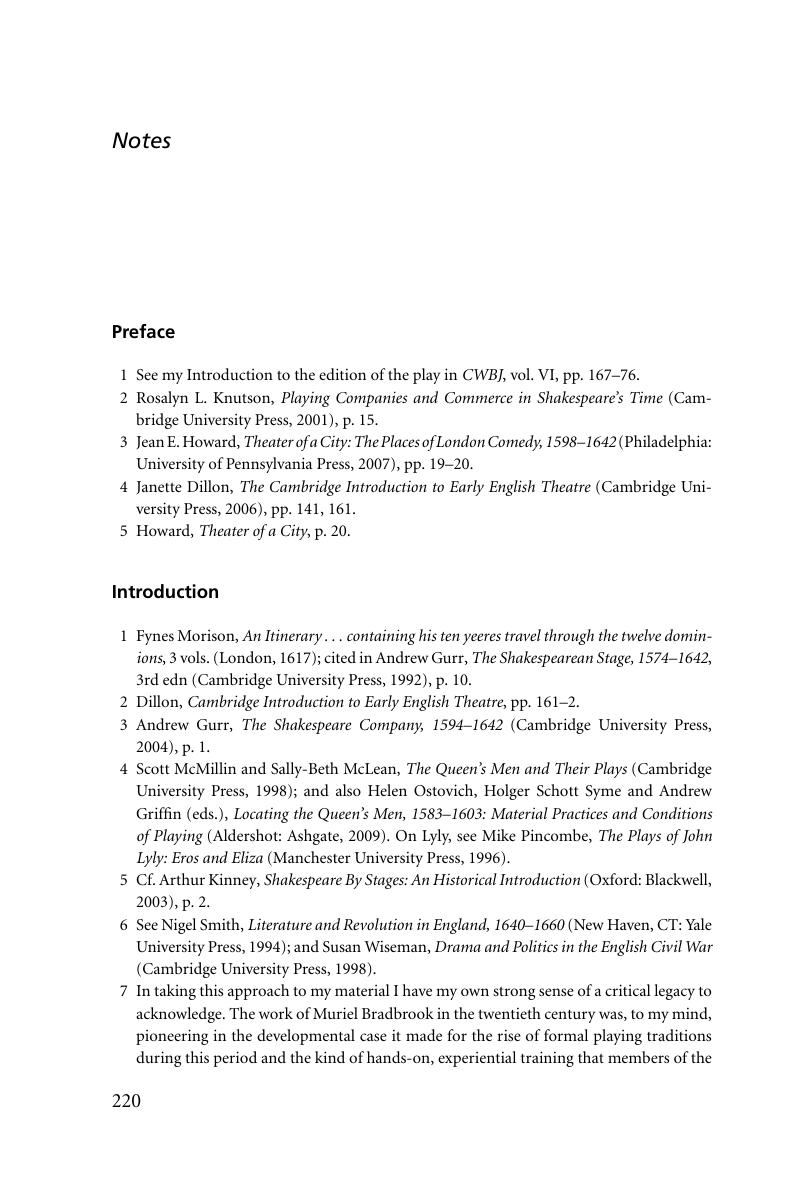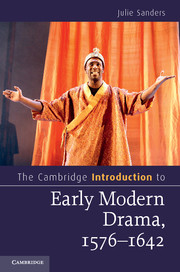Book contents
- Frontmatter
- Dedication
- Contents
- List of illustrations
- Preface: an outline of approaches taken
- Acknowledgements
- List of abbreviations and editions
- Introduction: Brick, lime, sand, plaster over lath and ‘new oaken boards’: the early modern playhouse
- Case study A Richard III at the Globe
- Case study B An outdoor theatre repertoire: the Rose on Bankside
- Chapter 1 Tragedy
- Case study C Opening scenes
- Case study D Staging violence and the space of the stage
- Chapter 2 Revenge drama
- Case study E ‘Here, in the Friars’: the second Blackfriars indoor playhouse
- Case study F The social life of things: skulls on the stage
- Chapter 3 Histories
- Case study G Title pages and plays in print
- Chapter 4 Comedy, pastoral and romantic
- Case study H The boy actor: body, costume and disguise
- Chapter 5 City comedies
- Case study I The dramaturgy of scenes
- Case study J Collaborative writing or the literary workshop
- Chapter 6 Satire
- Case study K Topical theatre and 1605–6: ‘Remember, remember the fifth of November’
- Case study L ‘Little eyases’: the children's companies and repertoire
- Chapter 7 Tragicomedy
- Case study M The visual rhetoric of dumb show
- Conclusion: The wind and the rain: the wider landscape of early modern performance
- Chronology
- Notes
- Bibliography
- Index
- Cambridge Introductions to . . .
- References
Notes
Published online by Cambridge University Press: 05 June 2014
- Frontmatter
- Dedication
- Contents
- List of illustrations
- Preface: an outline of approaches taken
- Acknowledgements
- List of abbreviations and editions
- Introduction: Brick, lime, sand, plaster over lath and ‘new oaken boards’: the early modern playhouse
- Case study A Richard III at the Globe
- Case study B An outdoor theatre repertoire: the Rose on Bankside
- Chapter 1 Tragedy
- Case study C Opening scenes
- Case study D Staging violence and the space of the stage
- Chapter 2 Revenge drama
- Case study E ‘Here, in the Friars’: the second Blackfriars indoor playhouse
- Case study F The social life of things: skulls on the stage
- Chapter 3 Histories
- Case study G Title pages and plays in print
- Chapter 4 Comedy, pastoral and romantic
- Case study H The boy actor: body, costume and disguise
- Chapter 5 City comedies
- Case study I The dramaturgy of scenes
- Case study J Collaborative writing or the literary workshop
- Chapter 6 Satire
- Case study K Topical theatre and 1605–6: ‘Remember, remember the fifth of November’
- Case study L ‘Little eyases’: the children's companies and repertoire
- Chapter 7 Tragicomedy
- Case study M The visual rhetoric of dumb show
- Conclusion: The wind and the rain: the wider landscape of early modern performance
- Chronology
- Notes
- Bibliography
- Index
- Cambridge Introductions to . . .
- References
Summary

- Type
- Chapter
- Information
- The Cambridge Introduction to Early Modern Drama, 1576–1642 , pp. 220 - 240Publisher: Cambridge University PressPrint publication year: 2014



